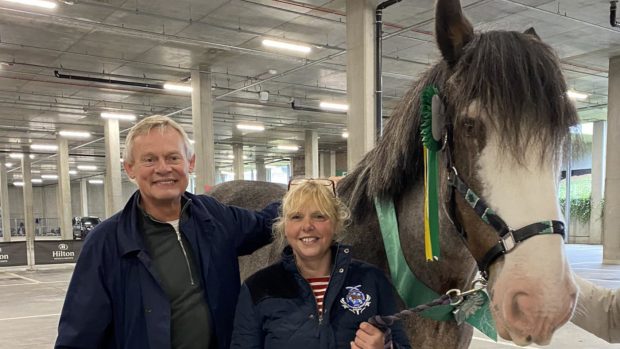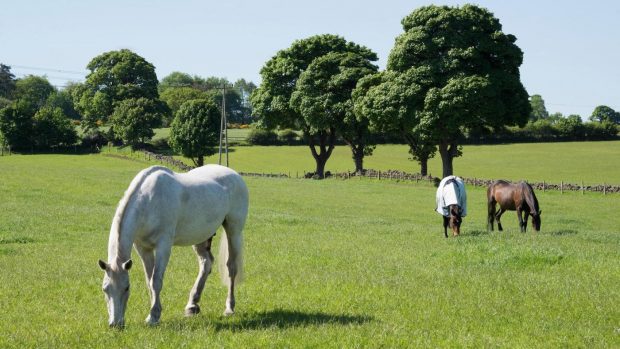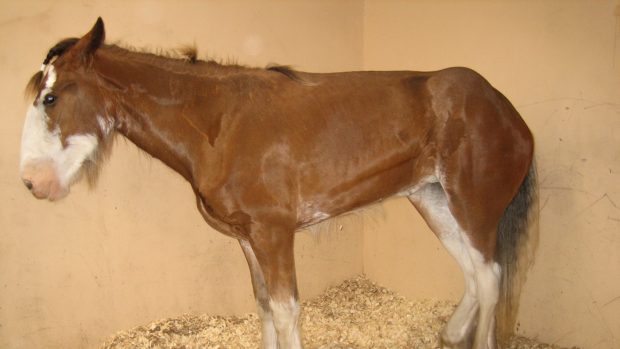Researchers at the University of Liverpool have confirmed a link between grass sickness and the bacterium Clostridium botulinum, leading to new hopes of an effective vaccine against the condition.
Grass sickness is a seasonal disease, with the majority of cases occuring during the spring. Symptoms include severe colic, weight loss and difficulty eating. In 95% of cases the disease is fatal. At present, experts have no way of knowing how many cases of grass sickness occur in the UK every year, but its impact is significant.
The condition is believed to have been first identified 95 years ago, in 1909. As early as 1917, the disease was associated with Clostridium botulinum, but only very recently has a definite connection been confirmed.
Research into the condition during the past 80 years has involved investigating every possible cause, including fungal toxins, and vitamin and mineral poisoning. The work has now come full circle, and the study at Liverpool University Equine hospital has concluded that grass sickness is strongly associated with the bacterium.
The research involved the study of 66 horses with grass sickness on 58 different premises. Blood samples were taken to compare antibody levels against Clostridium Botulinum in affected and unaffected horses, and management practices as well as soil and pasture were analysed.
Doctor Chris Proudman, Senior Lecturer in Equine Surgery at Liverpool explains: “Our study builds on previous work and demonstrates protection against the disease in horses with high antibody levels against the bacteria. This strongly suggests that vaccination may be effective in preventing the disease.”
Although association between the bacterium and grass sickness has been positively identified, experts believe there are a number of other contributing factors. University of Liverpool researchers think that changing feed type and the use of the worming agent ivermectin may increase susceptibility to grass sickness in horses, while feeding of hay or haylage has been found to protect against the disease.
Researchers are hopeful that it might be possible to have a field test up and running within two or three years, although the process of developing the vaccine is by no means simple.
Paul Jepson, chief executive of The Home of Rest for Horses says: “We are delighted to be associated with this long-awaited breakthrough in understanding the cause of grass sickness. There is now real hope for the development of an effective vaccine.”



